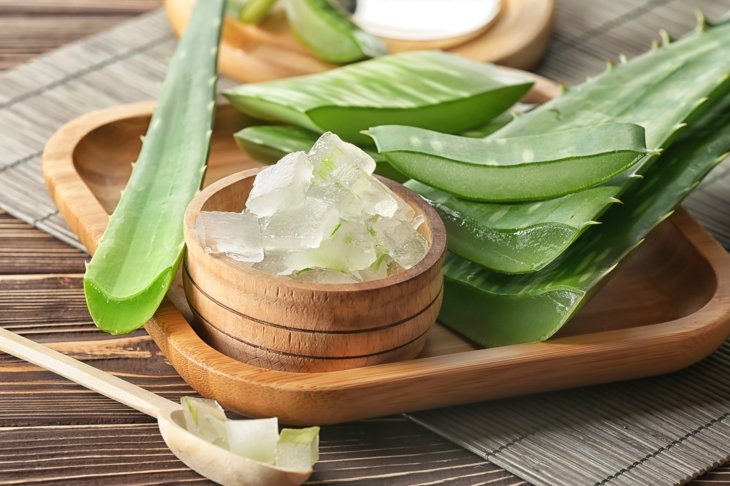
If you’re looking for a simpler, more natural approach to wellness, aloe should be at the top of your list. This multifaceted succulent has been used therapeutically for thousands of years and today is one of the most frequently used herbal therapies in the world. The slippery, transparent gel found within aloe’s leaves has antioxidant, anti-inflammatory, anti-microbial, and healing properties. Whether you apply it fresh to your skin, sip on the juice, or take it in supplement form, aloe offers an impressive list of health benefits.
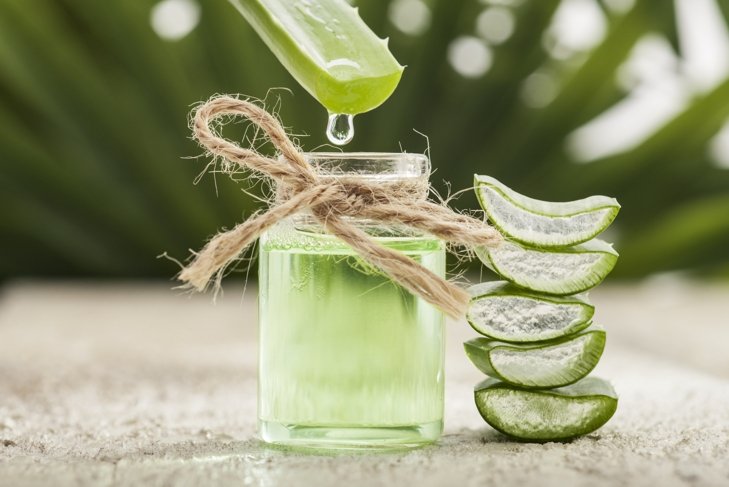
01
Feeds your skin
Ancient Egyptian queens Nefertiti and Cleopatra both used aloe as part of their daily skin care rituals—and you can too. Aloe gel is rich in amino acids, minerals, and vitamins that nourish and moisturize the skin without leaving a greasy residue. It also has lignins that help move nutrients deeper into the skin’s dermal layer and humectant properties to help seal in moisture.
02
Smooths wrinkles
 Aloe is nature’s gift to aging skin. Research shows that supplementing with aloe sterols may help stimulate the skin’s production of collagen and hyaluronic acid. Women taking part in clinical studies found that aloe sterols improved their skin’s elasticity and helped smooth out their facial wrinkles after only a few months of supplementation.
Aloe is nature’s gift to aging skin. Research shows that supplementing with aloe sterols may help stimulate the skin’s production of collagen and hyaluronic acid. Women taking part in clinical studies found that aloe sterols improved their skin’s elasticity and helped smooth out their facial wrinkles after only a few months of supplementation.
03
Speeds up healing
 Aloesin, aloin, and emodin, are the secret behind aloe’s healing properties. They’ve been clinically shown to speed up healing in all kinds of flesh wounds, ranging from surgical wounds and burns to pressure sores and frostbite. Applying aloe daily soothes the inflammation and oxidative stress within wounds, while stimulating collagen production to help repair damaged skin tissue. Even Alexander the Great was known to apply aloe on soldiers’ wounds to hasten their recovery.
Aloesin, aloin, and emodin, are the secret behind aloe’s healing properties. They’ve been clinically shown to speed up healing in all kinds of flesh wounds, ranging from surgical wounds and burns to pressure sores and frostbite. Applying aloe daily soothes the inflammation and oxidative stress within wounds, while stimulating collagen production to help repair damaged skin tissue. Even Alexander the Great was known to apply aloe on soldiers’ wounds to hasten their recovery.
04
Clears up acne
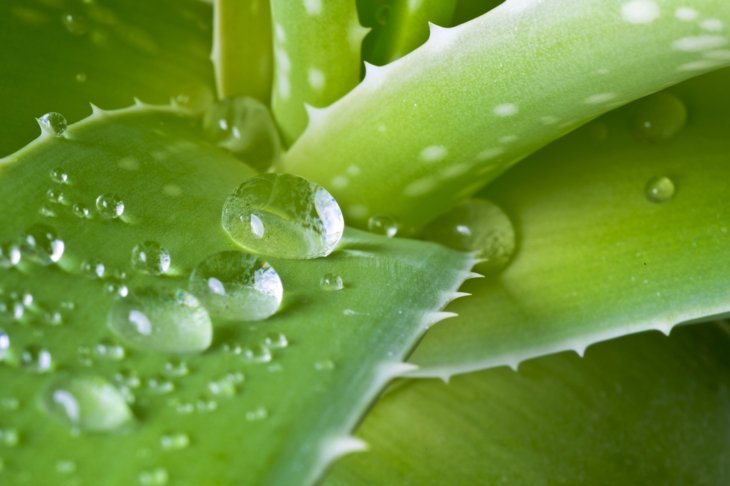 If your go-to acne treatment leaves your skin dry and irritated, try combining it with aloe. Aloe contains a natural source of salicylic acid and is used in various Ayurvedic preparations to fight acne causing bacteria. Combining aloe gel with common acne remedies, such as retinoids, increases their anti-acne benefits while minimizing irritating side effects.
If your go-to acne treatment leaves your skin dry and irritated, try combining it with aloe. Aloe contains a natural source of salicylic acid and is used in various Ayurvedic preparations to fight acne causing bacteria. Combining aloe gel with common acne remedies, such as retinoids, increases their anti-acne benefits while minimizing irritating side effects.
05
Soothes burns
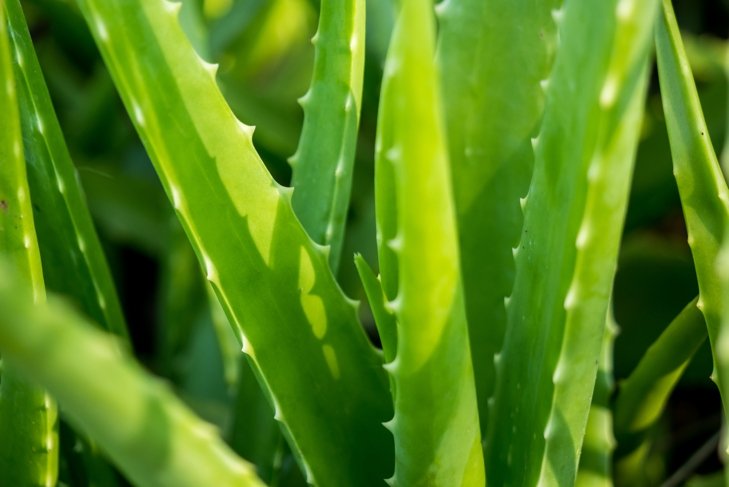 Aloe’s reputation as a burn remedy is well deserved—and backed by science. Aloe’s combination of antibacterial and skin healing ingredients help soothe and repair sunburned and heat burned skin. Clinical research shows that its gel is even more effective at reducing the pain, itching, infection, and recovery time in burn patients than many common treatments, including 1 percent silver sulfadiazine (SSD) cream.
Aloe’s reputation as a burn remedy is well deserved—and backed by science. Aloe’s combination of antibacterial and skin healing ingredients help soothe and repair sunburned and heat burned skin. Clinical research shows that its gel is even more effective at reducing the pain, itching, infection, and recovery time in burn patients than many common treatments, including 1 percent silver sulfadiazine (SSD) cream.
06
Freshens your mouth
 Regular swishing with an aloe-based mouthwash can do wonders for your oral health. Aloe gel has many antibacterial ingredients, including bitter tasting aloin, that help kill cavity- and plaque-causing bacteria.
Regular swishing with an aloe-based mouthwash can do wonders for your oral health. Aloe gel has many antibacterial ingredients, including bitter tasting aloin, that help kill cavity- and plaque-causing bacteria.
Rinsing with aloe juice can also soothe irritated mouth and gum tissue. Studies show that it lowers pain and inflammation from dental surgery and helps to prevent mouth sores from braces and other orthodontic appliances.
07
Nourishes your body
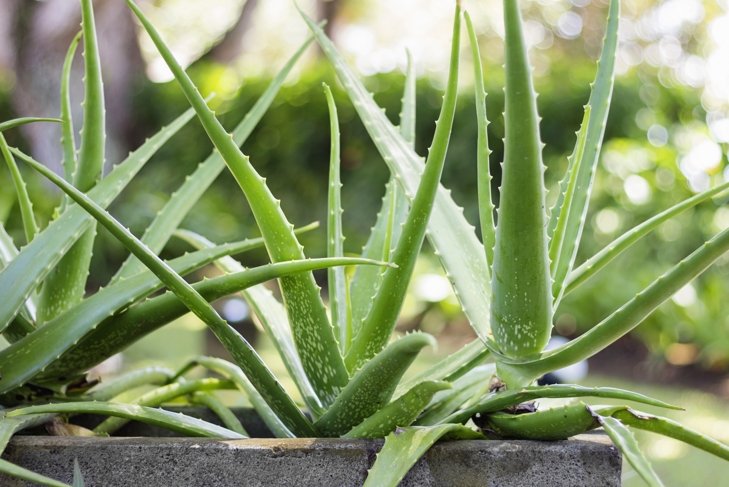 With over 75 different nutrients, aloe juice is both refreshing and nourishing. Its gel contains a range of minerals, including zinc and magnesium, antioxidant vitamins A, C, and E, and choline. Aloe is also one of the few plant-based sources of vitamin B12, which is especially important for vegans and vegetarians.
With over 75 different nutrients, aloe juice is both refreshing and nourishing. Its gel contains a range of minerals, including zinc and magnesium, antioxidant vitamins A, C, and E, and choline. Aloe is also one of the few plant-based sources of vitamin B12, which is especially important for vegans and vegetarians.
The trick to aloe juice is not overdoing it! Drinking too much can have a laxative effect, so water it down or add a splash to your favorite elixir.
08
Heals your gut
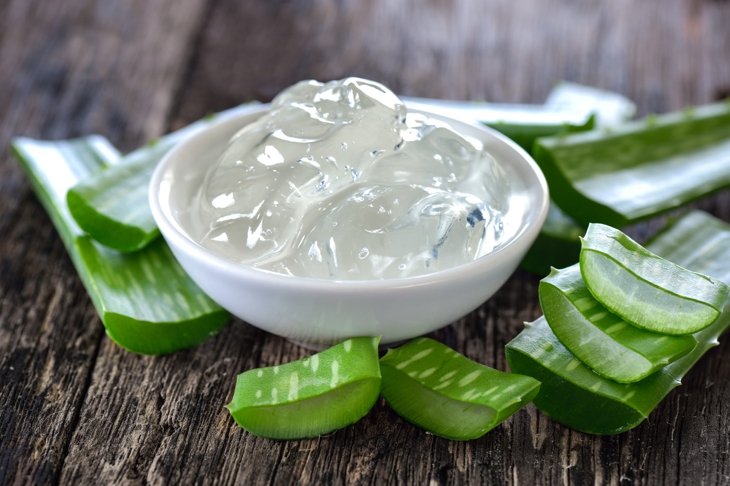 Around 40 percent of North Americans suffer from a functional gastrointestinal disorder. If you’re one of them, aloe juice and extracts may help relieve your symptoms. They work by
Around 40 percent of North Americans suffer from a functional gastrointestinal disorder. If you’re one of them, aloe juice and extracts may help relieve your symptoms. They work by
- soothing irritated gut tissue
- inhibiting ulcer-causing bacteria
- fighting oxidative stress
- lowering gastric acid production
Many people have found success using aloe to relieve the discomfort of irritable bowel syndrome and symptoms of gastroesophageal reflux disease (GERD), such as heartburn, dysphagia, gas, and nausea.
09
Glycemic friendly
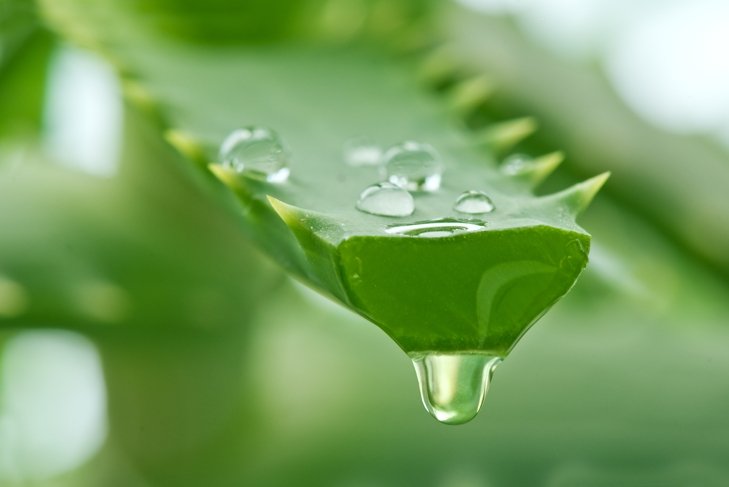 Aloe shows great promise for the 29 percent of Canadians and 45 percent of Americans who live with diabetes, prediabetes, or undiagnosed high blood sugar. Its gel is used in folk medicine for managing blood sugar, and although more research is needed to confirm this benefit, aloe’s low-carb juice makes an excellent addition to low GI (glycemic index) diets.
Aloe shows great promise for the 29 percent of Canadians and 45 percent of Americans who live with diabetes, prediabetes, or undiagnosed high blood sugar. Its gel is used in folk medicine for managing blood sugar, and although more research is needed to confirm this benefit, aloe’s low-carb juice makes an excellent addition to low GI (glycemic index) diets.
10
Keeps you regular
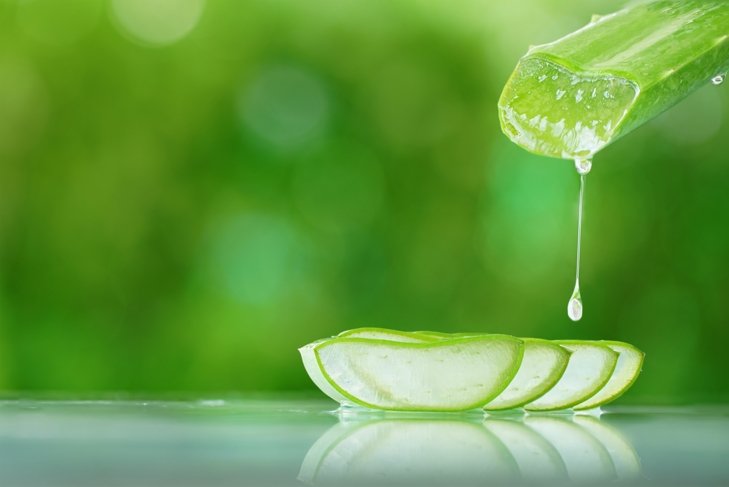 Aloe is traditionally used as an herbal laxative—and it’s effective! Thanks to the compounds aloin A and barbaloin found within the latex of its leaves, aloe stimulates the large intestine to relieve short-term constipation.
Aloe is traditionally used as an herbal laxative—and it’s effective! Thanks to the compounds aloin A and barbaloin found within the latex of its leaves, aloe stimulates the large intestine to relieve short-term constipation.
Because aloe latex is potent, it should not be used for long periods or at high doses. As a precaution, discuss aloe latex with your health care practitioner before use.
















